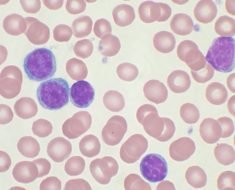A newly developed technique allows researchers to more easily study malaria outside the human body during the earliest point of infection, the liver. The liver stage is significant as it precedes the parasite’s ability to infect human blood, the point of which symptoms of malaria first appear.
“Almost all of the current strategies are focused the blood-stage of malaria—after the person has already become infected,” said lead author John Adams, Ph.D., distinguished professor at the University of South Florida College of Public Health. “But, in order to eradicate this disease, you need to block the cycle of reinfection and the most efficient way to do that is by blocking the parasite from coming into the person. This has not been possible previously because the methods of studying the liver stage have just not been there. Our technique makes that work possible.”
In the study published in Nature Communications, researchers used 384-well plates, the standard tool used for analytical lab research, to cultivate primary human liver cells, greatly enhancing parasite development rates. This updated in vitro method allows scientists to more quickly screen preclinical drugs and vaccines than current techniques.
“Some of the other methods for researching liver stage malaria are very expensive with large biomaterial requirements,” said co-lead author Alison Roth, Ph.D., University of South Florida College of Public Health. “Our method reduces the cost and biomaterials which makes it much more accessible,” Roth said. “It’s exciting to know that the model we’ve developed can be easily adapted to other labs and even used in endemic countries.”
Source: Read Full Article





